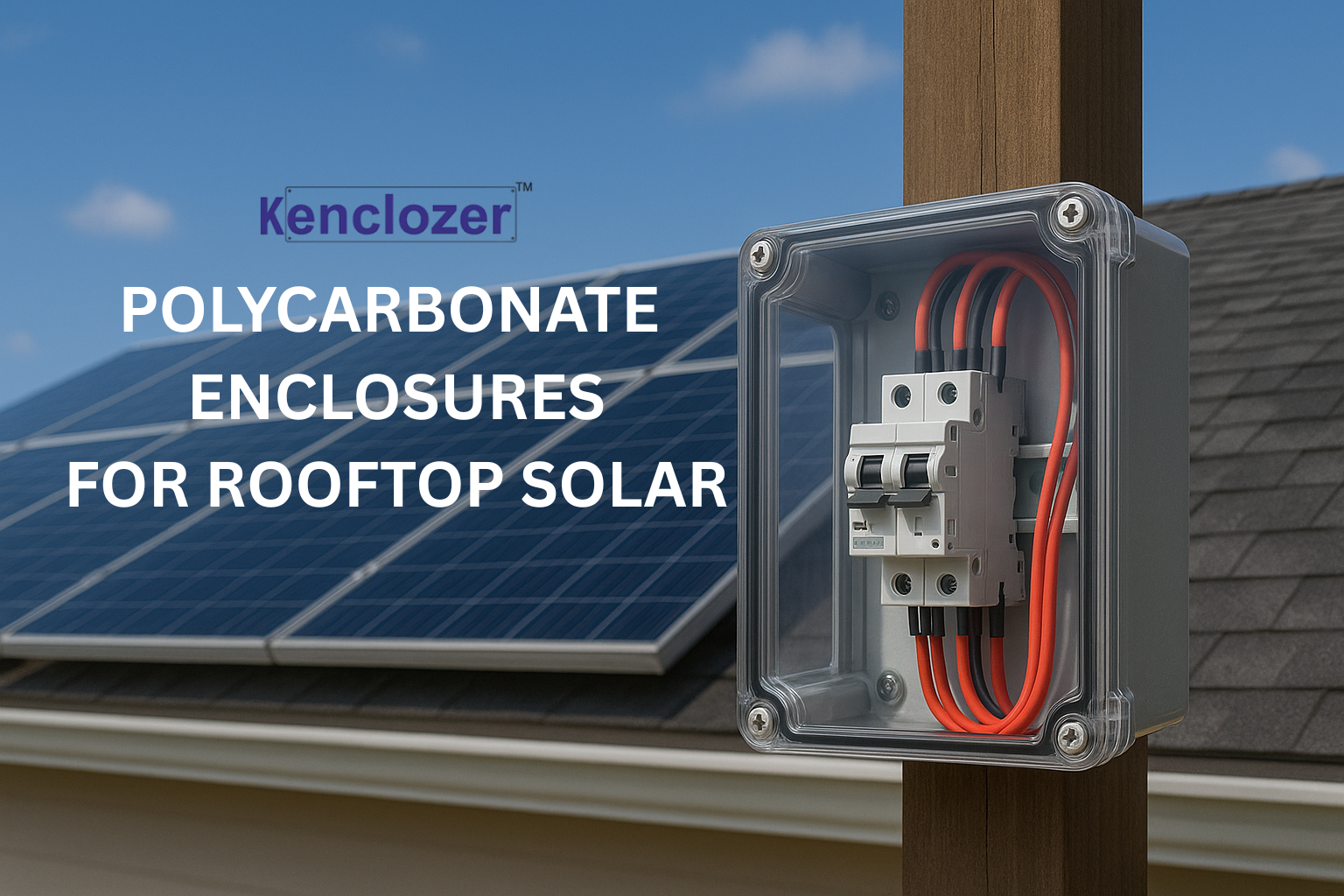Polycarbonate Enclosures for Rooftop Solar Systems: A Complete Guide

The rooftop solar systems have become the first preference of solar energy systems when it comes to residential, commercial, or industrial solar power systems and land in the stadium with the hike in the demand for clean renewable energy sources. The junction box is one of the significant aspects of a rooftop solar installation that many people may willingly ignore. In particular, the polycarbonate Enclosures have become a favorite of many solar experts in terms of durability, insulation, and resistance to extraordinary environments.
So, in this article, we are going to go into detail on what polycarbonate Enclosures are, why they are of interest in your solar installation, and how they lead into the overall safety and functionality of your solar power system.
What is a junction box in a solar system?
Solar systems use a junction box as a central spot in which wires of solar panels converge. It promotes secure electrical connection, assists in cable management, and resists weather and destruction of terminals. Enclosures are used:
- Behind each solar panel (PV module junction box)
- At string level (string combiner box)
- As part of AC and DC distribution systems
Terminals and bypass diodes are used in the box to assure ease of current flow and in guarding against reverse currents and faults.
Why Polycarbonate is the Best Solar Junction Box Material
Polycarbonate (PC) is a high-performance polymer with exemplary mechanical properties, resistant to shocks and UV. The properties of these traits make it a better material for a solar junction box than a conventional metal or PVC box.
Key Advantages:
- UV and Weather Resistance: Suitable against long-time light under the sun, heavy rain, wind, and temperature change.
- High Impact Strength: Non-brittle or crack-resistant to pressure or an impact.
- A very strong electrical insulation minimizes the chance of short-circuiting and fire.
- Non-Corrosive: Ideal in the coastal and high-humidity environments where the issue of rusting is a problem.
- Weight-Saving Design: Lightweight, it can be handled easily, installed easily, and maintained.
Key Features of a Polycarbonate Solar Junction Box
When choosing a polycarbonate junction box for your solar system, look for:
- IP65/IP66/IP67 rating for dustproof and waterproof protection
- Double insulation for safety
- Transparent covers for quick inspection
- UV resistant body is used in outdoor applications over an extended period of time
- Fireproof design to offer additional safety
- Pre-fitted cable glands and DIN rails for smooth installation
Application in Rooftop Solar Systems
Residential Rooftops:
- Connects a few panel strings and routes power to the inverter
- It should also be small in size, aesthetically matching, and weatherproof
Rooftops: Commercial and industrial:
- Applied in large-scale installations having numerous strings and large elongated current
- Often integrated with surge protection devices (SPD), circuit breakers, etc.
Benefits of Using Polycarbonate Enclosures in Solar Systems
| Feature | Benefit |
|---|---|
| Weatherproof | Works reliably in all climates |
| UV-Resistant | No fading or cracking over time |
| Electrically Insulated | Prevents electrical mishaps |
| Rust-Free | Ideal for coastal or humid areas |
| Lightweight | Easy to carry and mount |
Solar Junction Box Installation Tips
- Place the box in a place that is easily accessible and not in the direct foot traffic.
- Install UV cable glands and seal them very well.
- Terminals should not be over-tightened, as this would damage conductors.
- Identify every connection with labels that can be used during maintenance.
- Look out occasionally to check the entry of dust or moisture.
FAQs
Conclusion
When it comes to rooftop solar systems, all segments are important, but pay special attention to the elements that comprise safety, efficiencies, and durability. This polycarbonate junction box is not as simple as any other container; rather, it is a shield that protects the vital wiring and maintains clean current at any time and also accepts the distinct climate conditions of India.
By selecting a polycarbonate junction box of higher quality, it is possible to minimize the period of downtimes, enhance safety, and resultantly enhance the age of your solar power system. Installing a 3kW domestic or 100kW industrial plant, these boxes promise years of good service and worry-free operation.